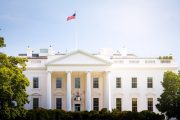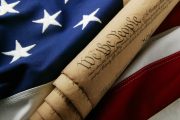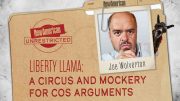
On Monday, U.S. Magistrate Judge James Orenstein ruled that the Department of Justice cannot force Apple to provide the FBI with access to a locked iPhone involved in a drug case in Brooklyn, New York, as it represents a violation of the separation of governmental powers. Experts contend the ruling could have significant implications in Apple’s current battle with the FBI regarding the San Bernardino terrorism investigation.
The government has been relying on a Colonial-era law to authorize the extraction of encrypted data from technological devices in criminal cases at the government’s request. But in Monday’s ruling, Judge Orenstein found that the All Writs Act does not apply to cases wherein Congress could have authorized the government to obtain the information it needed, but did not, as is the case with the 1994 Communications Assistance for Law Enforcement Act (CALEA). Orenstein pointed out that when Congress adopted CALEA, lawmakers rejected requiring companies such as Apple to help with decrypting encoded information, and that the government is using the All Writs Act to obtain authority from the courts that Congress had chosen not to provide in the CALEA.
Orenstein received the government’s application to issue an order to Apple in the drug dealer case last fall. As observed by the Washington Post, the request was routine as it involved an old operating system that Apple bypassed numerous times for the federal government. But on October 9, Orenstein discovered a flaw in the government’s argument that cited a 1985 decision which found that the All Writs Act is a source of authority to issue writs “not otherwise covered by the statute.” Orenstein pointed out that the prosecutors failed to cite another part of the same decision that does not authorize the issuance of “ad hoc writs whenever compliance with statutory procedures appears inconvenient or less appropriate.”
Orenstein contends that the case of the drug dealer’s phone “falls in the murkier area in which Congress is plainly aware” of the absence of a law to authorize what the government is seeking and has not created one to remedy it.
His observation ultimately changed the scope of the case to one that examined whether the government was filling a gap by granting authorities that should otherwise be granted by Congress.
Fox News reports that Judge Orenstein invited Apple to challenge the law that compelled Apple to recover iPhone data in criminal cases. Apple did, stating that the extraction of information from iPhones “could threaten the trust between Apple and its customers and substantially tarnish the Apple brand.”
On Monday, Orenstein ruled that Apple has no obligation to assist government investigators against its will, contending that it is the role of Congress to pass legislation to achieve the goal of obtaining the data. “How best to balance those interests is a matter of critical importance to our society, and the need for an answer becomes more pressing daily, as the tide of technological advance flows ever farther past the boundaries of what seemed possible even a few decades ago,” Orenstein wrote. “But that debate must happen today, and it must take place among legislators who are equipped to consider the technological and cultural realities of a world their predecessors could not begin to conceive.”
In Orenstein’s 50-page ruling, he called the government’s interpretation of the All Writs Act as it was applied “absurd” because it ultimately authorizes information to be sought even if every lawmaker in Congress voted against granting that authority. In the judge’s opinion, it represented an outright violation of “general protection against tyranny that the Founders believed required the careful separation of governmental powers.”
“Ultimately, the question to be answered in this matter, and in others like it across the country,” Orenstein wrote, “is not whether the government should be able to force Apple to help it unlock a specific device; it is instead whether the All Writs Act resolves that issue and many others like it yet to come. For the reasons set forth above, I conclude that it does not.”
A Justice Department spokesman said in a statement,
We are disappointed in the Magistrate’s ruling and plan to ask the District Judge to review the matter in the coming days. As our prior court filings make clear, Apple expressly agreed to assist the government in accessing the data on this iPhone — as it had many times before in similar circumstances — and only changed course when the government’s application for assistance was made public by the court. This phone may contain evidence that will assist us in an active criminal investigation and we will continue to use the judicial system in our attempt to obtain it.
Just how this ruling may impact the case involving the San Bernardino terrorist attack remains to be seen. The Washington Post observed that while Judge Orenstein’s ruling is not binding in any other court, “it takes on an outsize importance as the U.S. government battles Apple in a separate case in California over whether the tech firm should help unlock a phone used by one of the shooters in the San Bernardino terrorist attack in December.”
Alex Abdo of the American Civil Liberties Union contends that Judge Orenstein’s rejection of the government’s request in this case likely means that the FBI’s request involving the San Bernardino shooter is “necessarily illegal, too.”
Though Orenstein’s case and the San Bernardino case are entirely different, they both involve application of the 1789 All Writs Act. But in the latter case, the FBI has asked Apple to write a special version of its software to weaken the phone’s security so that the FBI can attempt to obtain the shooter’s password.
Yahoo News writes that the case will likely end up before the Supreme Court if Congress fails to pass legislation to address the questions raised by the case.





